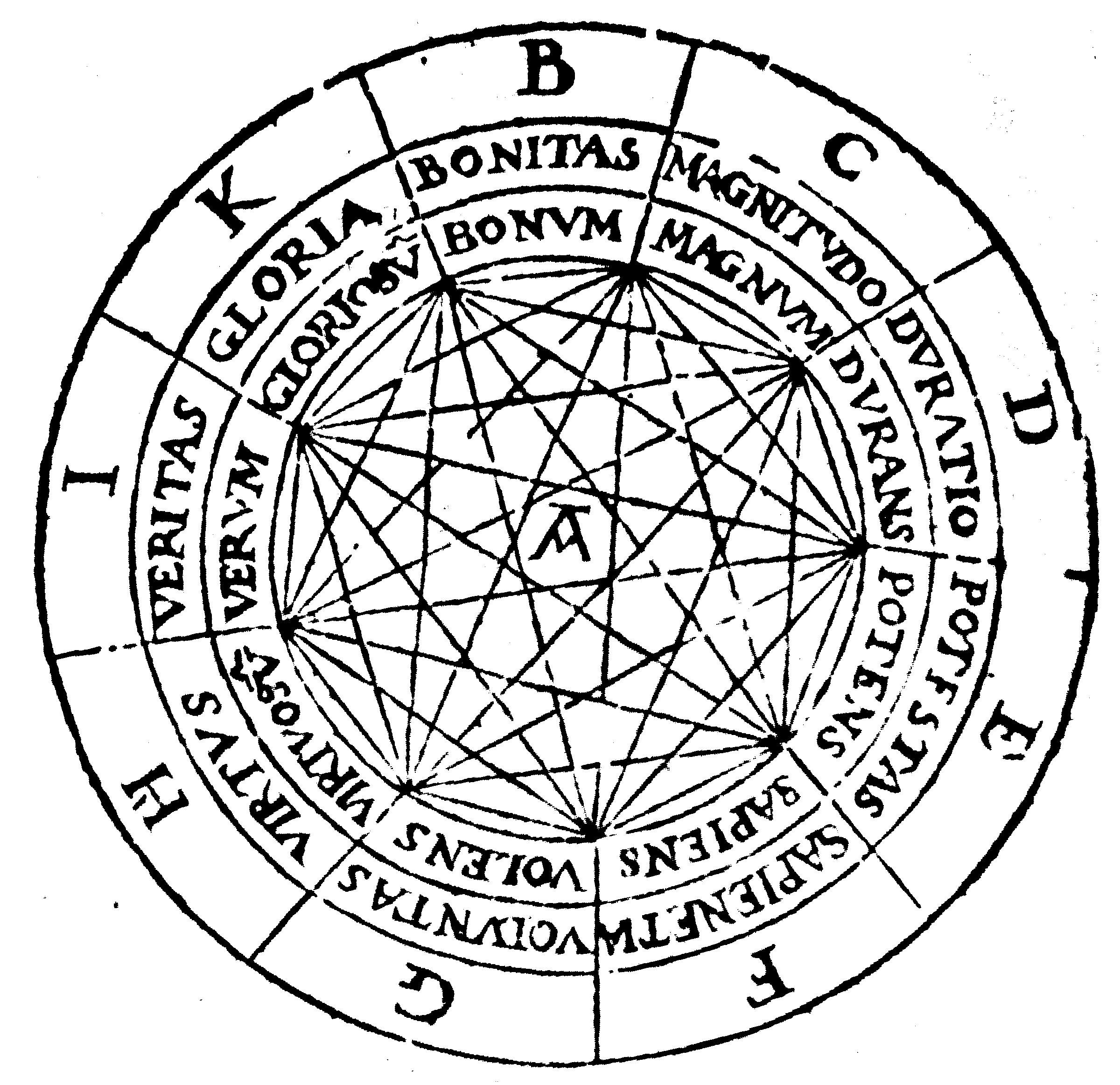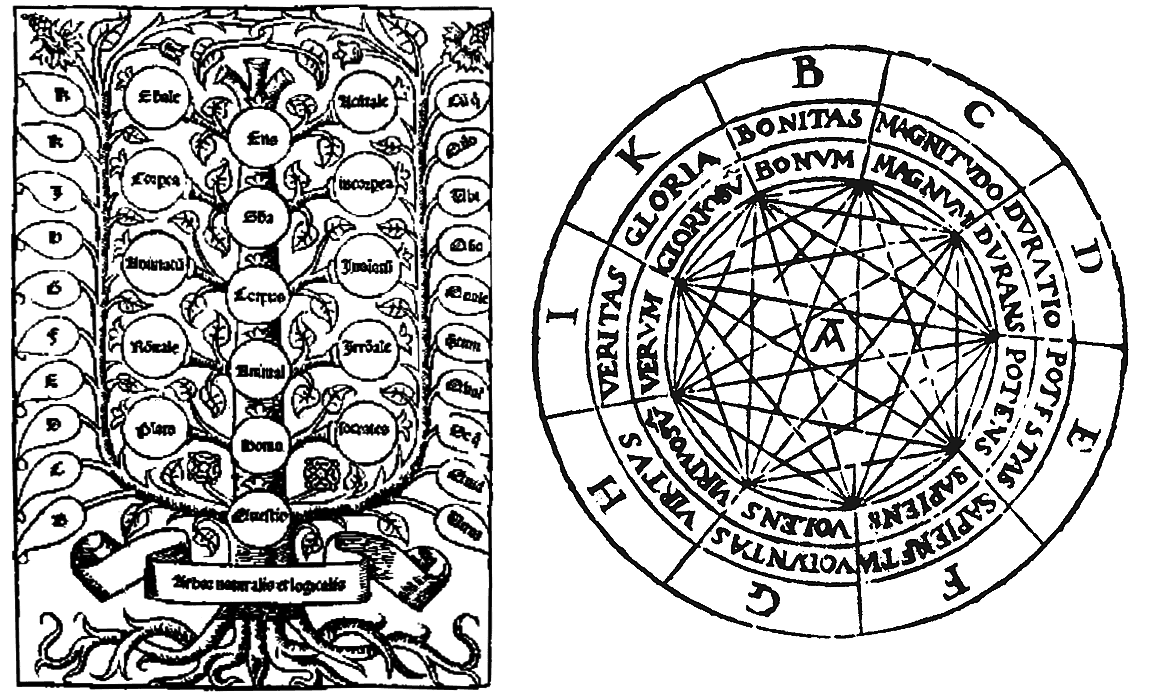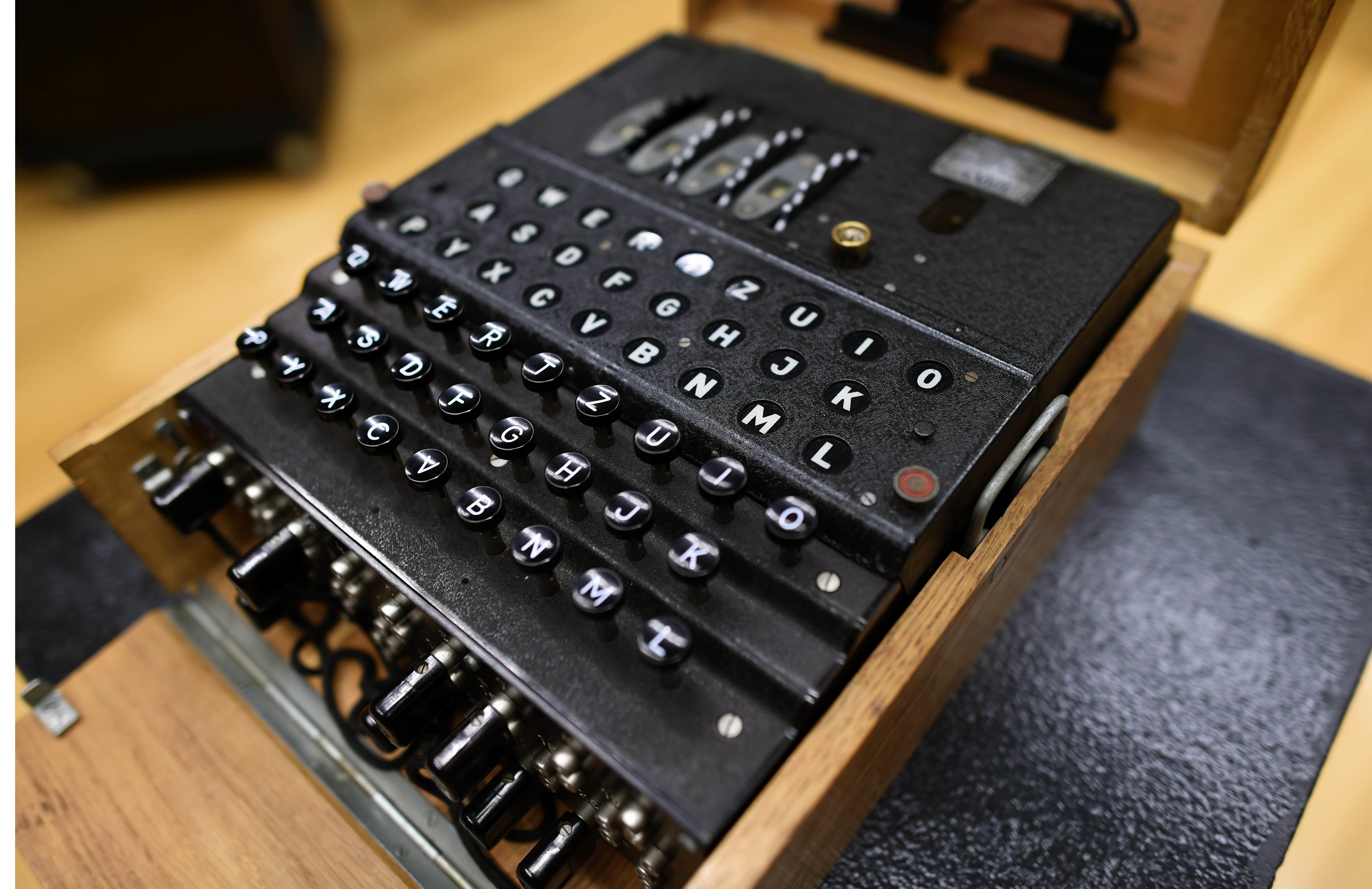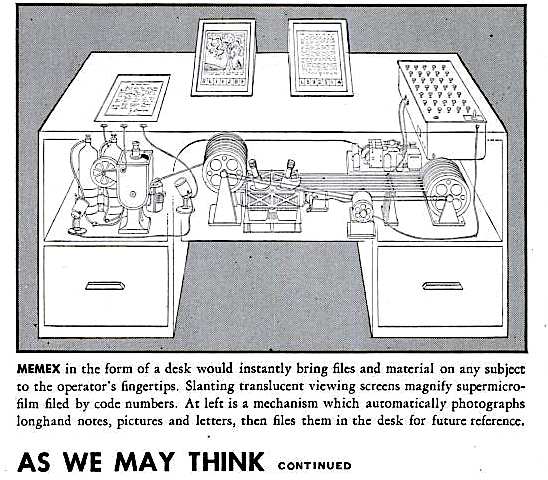
History of computable knowledge
"There’s pure knowledge—in a sense just facts we know. And then there’s computable knowledge. Things we can work out—compute—somehow. Somehow we have to organize—systematize—knowledge to the point that we can build on it—compute from it."
Timeline: https://en.wikipedia.org/wiki/Template_talk:Comput...
The Atlantic article: From Filing Cabinets to Digital Thought http://www.theatlantic.com/technology/archive/2011...
"The way we represent, organize and share our knowledge propels us forward. It can either constrain or extend our abilities to think and create." (the medium is the message, McLuhan)
we have successfully digitized our industrial age tools: we still open folders and pull out files: "as useful as this filing metaphor is, in the Internet era it places unnecessary constraints on our information"
Ramon Llull and the Ars Magna
catalan philosopher, logician, mystic
designed a method/logical machine
demonstrated that human thought can be described and imitated by a device (llull’s art, ars magna)
a pioneer of computation theory, some claim his system of logic was the beginning of information science
logical reasoning is computation (kind of) and can be formalised and validated by controllable means
the idea of generative systems
a set of rules (grammar), "basic concepts" that truths can be derived from; the grammar is capable of generating a language and also recognizing strings as belonging to it
inference is the act or process of deriving logical conclusions from premises known or assumed to be true (all A = B and C = A therefore C = B)
has a dual quality and can be executed in reverse
Llull's inspiration for the idea of starting from a finite set of rules to develop a whole system (among others):
Al-Khwarizmi'x algorithms, the idea of rule-directed manipulations
Llull's rotating disks use in cryptography, Leopardi; + the rotors of the Enigma machine


Jorges Luis Borges and the Universal Library or the Library of Babel
Online Library of Babel: https://libraryofbabel.info/
https://en.wikipedia.org/wiki/The_Library_of_Babel
‘Mysteries ought to be simple. Remember Poe’s Purloined letter, remember Zangwill’s locked room.’
‘Or complex,’ replied Dunraven. ‘Remember the universe.’
The Mundaneum
https://en.wikipedia.org/wiki/Mundaneum
https://www.google.com/culturalinstitute/collection/mundaneum
precursor to the internet, to wikipedia or wolfram alpha
aimed to gather together all the world's knowledge
"the paper Google"

Vannevar Bush and the MEMEX
(MEMory indEX)

Wolfram Alpha
Computational knowledge engine
"an online service that answers factual queries directly by computing the answer from externally sourced "curated data", rather than providing a list of documents or web pages that might contain the answer as a search engine might."
– How much of the world’s data can we curate?
– How many of the methods and models from science and other areas can we encode?
– Can we let people access all this using their own free-form human language?
– Can we show them the results in a way that they can readily understand?
Stephen Wolfram on the Quest for Computable Knowledge (blog/speech)
the history of this quest; from the invention of counting and arithmetic (20 000 BC), the emergence of written language around 4000 BC, the tradition of science, Pythagoras using numbers to describe everything in 500 BC, the discovery of "how atoms might make up the universe as letters make up words and sentences", the idea of LOGIC, philosophy
"there was a general feeling that the kind of systematic derivations that existed in mathematics should somehow be applicable to at least some of the goings-on in the natural world"
physical processes being understood in the language of mathematics; Newton's Principia in 1687
libraries and encyclopedias
Gödels theorem
Turing machines
neural circuits in the brain and circuits in the electronic computer
even very simple programs—started off in the simplest way—could produce incredibly complex behavior. Patterns that if you saw them you’d say, “That must have been produced by something really complicated.”
once we start thinking in computational terms, we start to be able to ask some fundamental questions
Timeline of Systematic Data and the Development of Computable Knowledge
http://www.wolframalpha.com/docs/timeline/
A New Kind of Science (book)
http://www.wolframscience.com/nksonline/toc.html